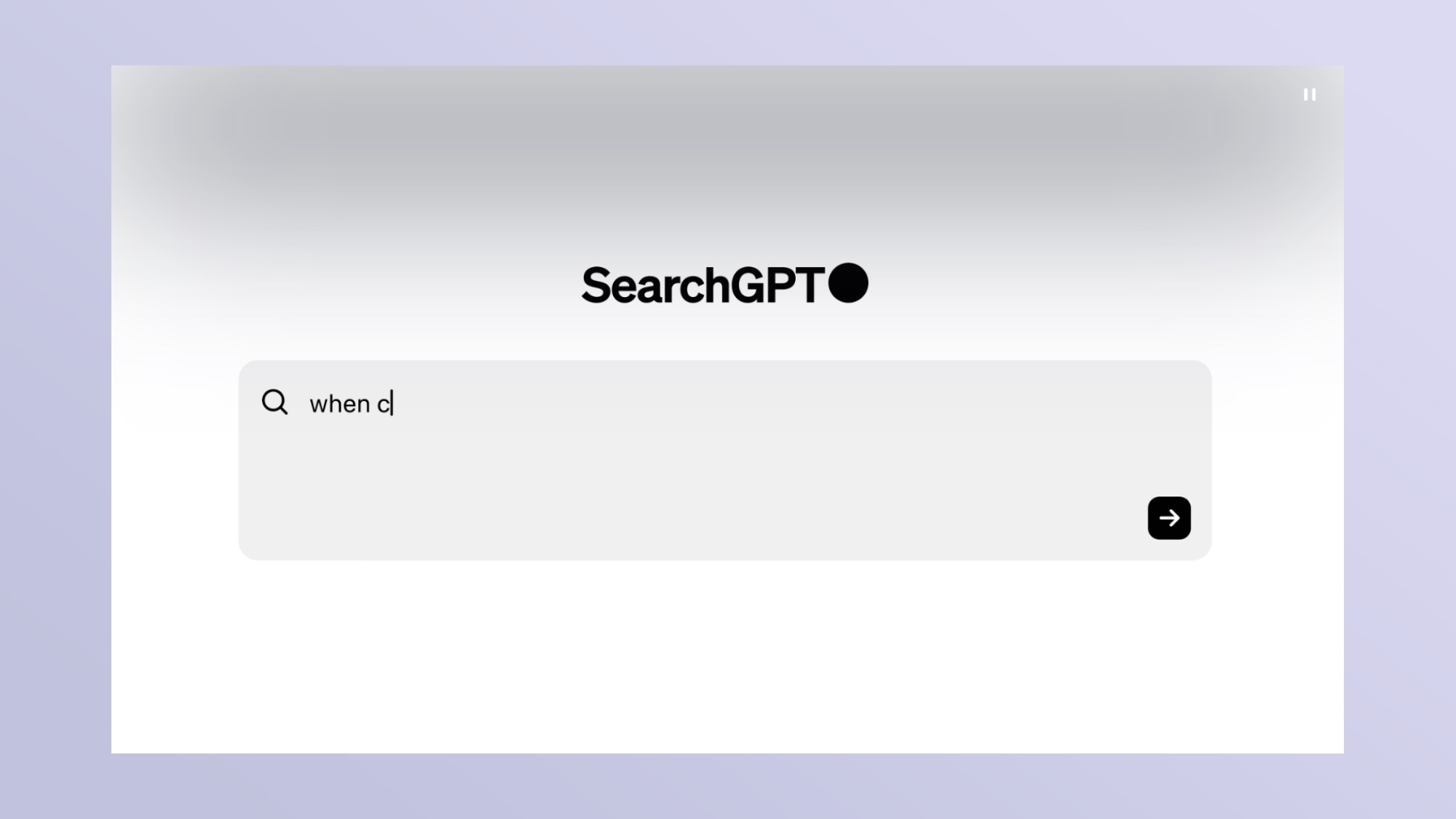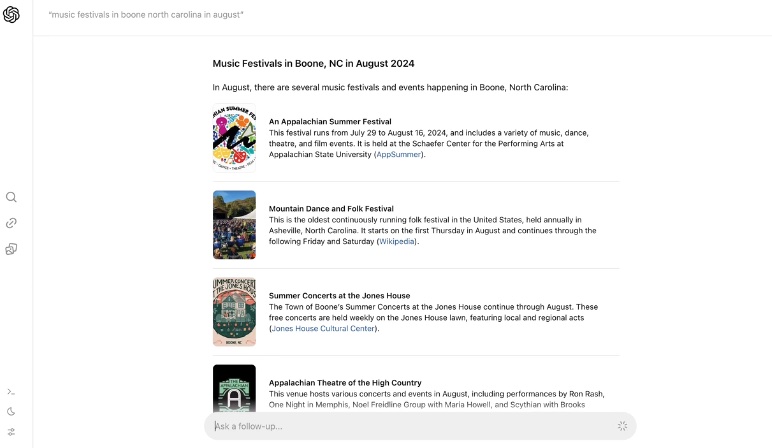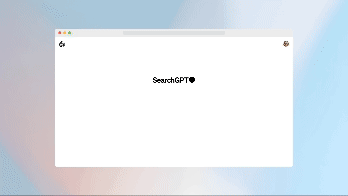5 ways SearchGPT is very different than Google Search
SearchGPT is here, and it's a whole new world

OpenAI, the company behind the popular ChatGPT, has announced SearchGPT, a new search tool designed to compete directly with Google. SearchGPT is designed to make finding things online an entirely different experience. It's currently in the prototype phase and will eventually be integrated into the main ChatGPT app.
OpenAI CEO Sam Altman posted on X saying, "We think there is room to make search much better than it is today."
Google tried integrating AI into its search results with questionable quality — we all remember the great putting glue on pizza fiasco.
Whether it'll be better than Google is a question for another time. However, one thing we can say for sure, without even trying SearchGPT yet, is that it's different from Google and other traditional search engines.
SearchGPT: Conversational results

When searching on Google, most people type in what they want to know about. For example, if you're looking for ChatGPT, type "ChatGPT" in the search box and see what comes up.
With SearchGPT, though, you converse with the tool through questions. Instead of typing ChatGPT into the search box, you'd ask what you want to know about it. You might say, "Who made ChatGPT," or "How much is ChatGPT."
OpenAI says, "Now, we’re using AI to enhance this experience by highlighting high-quality content in a conversational interface with multiple opportunities for users to engage." You'll still find results from your favorite websites, but you'll look for them differently.
Sign up to get the BEST of Tom's Guide direct to your inbox.
Get instant access to breaking news, the hottest reviews, great deals and helpful tips.
Will it be better or worse than how we're accustomed to searching? Time will tell.
SearchGPT: Follow-up questions

Building on the conversational elements of SearchGPT are the follow-up questions. "You’ll be able to ask follow-up questions, as you would in a conversation with a person, with the shared context building with each query," explained OpenAI.
That means if you search for the above example of "How much is ChatGPT," you could follow up with something like "What do I get with a premium subscription," or "How many people pay for ChatGPT."
If you're talking to an expert on a subject, you wouldn't just ask an initial question and leave. You'd follow up with additional questions based on their answers, and that's what OpenAI is attempting to recreate. Expect that you will get the whole internet instead of having one expert.
SearchGPT: No ads

This one is pretty self-explanatory. Google has cluttered search results with ads and in recent years. You have to scroll through multiple "Sponsored" results before you get to the high-ranking articles on the topic.
As of now, SearchGPT doesn't have ads, so the results you get are actually the best ones, at least according to whatever system the company is using to surface results. "Now, we’re using AI to enhance this experience by highlighting high-quality content in a conversational interface with multiple opportunities for users to engage," said OpenAI on the topic of quality results.
SearchGPT: Simpler interface

Google Search is a lot heavier than it was in the old days. You no longer visit the site and get a simple search box on mobile. Now, you'll see extra stuff like the Google Discover feed. And on desktop you'll see links to Gmail and prompts to join Google's climate action.
With SearchGPT, we're back to that glorious-looking search box (or, in this case, question box) designed to get you what you're looking for so you can move on with your day.
Of course, the interface may not stay simple forever, especially once it is implemented with the whole ChatGPT experience (though the main chatbot's interface is still relatively clean).
SearchGPT: Working with publishers

Perpahs the most underrated differnece between SearchGPT and Google Search is that OpenAI promises that it's working with publishers and reporters to keep journalism at the forefront of its efforts. "We are committed to a thriving ecosystem of publishers and creators. We hope to help users discover publisher sites and experiences, while bringing more choice to search," said the company.
Nicholas Thompson, CEO of The Atlantic, said, "AI search is going to become one of the key ways that people navigate the internet, and it's crucial, in these early days, that the technology is built in a way that values, respects, and protects journalism and publishers."
Unlike traditonal ChatGPT, which just provides answers to questions, this will answer the question and cite the publication, linking back to them for users who want to learn more. "SearchGPT is designed to help users connect with publishers by prominently citing and linking to them in searches," explained OpenAI on its website.
SearchGPT: Outlook
While OpenAI is saying everything right, it has a challenging mountain to climb. Google is synonymous with search; dethroning it will take a Herculean effort.
'How much SearchGPT ends up competing with the current leading consumer search engines will be partly dependent on the actual speed and accuracy of using SearchGPT," said Hayley Sutherland, Research Manager, Conversational AI & Intelligent Knowledge Discovery at IDC, "And these parameters will also help determine the use cases (types of searches/question answering) that SearchGPT will be best suited for."
SearchGPT is promising, but we need to dig in and fully experience it for ourselves.
More from Tom's Guide
- Meta just took the AI fight to OpenAI in a big way — here's how Llama 3.1 beats Chat GPT
- OpenAI to make GPT-4o Advanced Voice available by the end of the month to select group of users
- OpenAI outlines plan for AGI — 5 steps to reach superintelligence

Dave LeClair is the Senior News Editor for Tom's Guide, keeping his finger on the pulse of all things technology. He loves taking the complicated happenings in the tech world and explaining why they matter. Whether Apple is announcing the next big thing in the mobile space or a small startup advancing generative AI, Dave will apply his experience to help you figure out what's happening and why it's relevant to your life.










